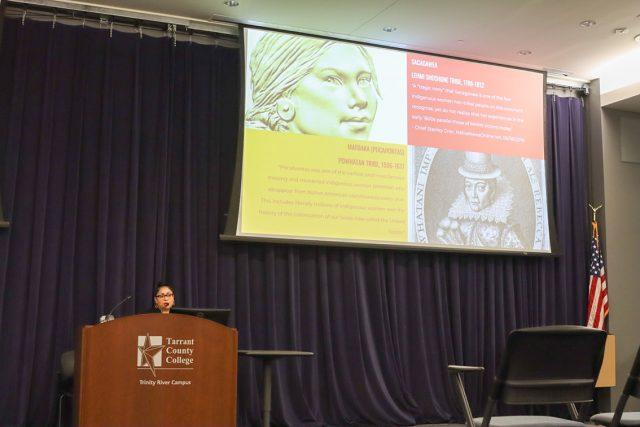
Joel Solis/The Collegian
RABBIA MOLAI
managing editor
rabbia.molai@my.tccd.edu
A program called Compass has caused TCC’s graduating nursing cohort to reach their breaking point.
At the beginning of the fall semester, TR’s nursing students were informed that they would be required to purchase an additional training program called Compass for $350. Compass is an online program meant to help prepare students for their in-class exams.
Although Compass had been utilized for previous cohorts, the administration decided that unlike previous semesters, they would no longer offer points for the work completed through the program.
This means, along with their existing workload, the students were now responsible for up to 15 additional hours of work each week that would not contribute to their grade.
After voicing their concerns and receiving no action the students decided to come together and start a petition.
TR student Brianna Ross started the petition for her and her classmates as a way to show their strength in numbers.
“We decided it would be best if we showed the unity because all of us are upset about this,” Ross said. “It’s not just a few people, so we said that the petition was the best way that we could show unity through this.”
After creating the petition, which gained over 200 signatures, the students again decided to contact the Dean of Nursing Dr. Jose Alejandro. They were met with the same response, to speak to their instructors and move up the chain of command— which they did,
multiple times.
Alejandro refused to respond to numerous emails and calls seeking comment as did other members of the nursing staff and faculty.
This cycle has continued for months and has yet to receive a resolution from anyone on the chain of command. Instead, they said they have received snarky remarks and been made to feel as though they are the villains.
For some students, the reactions and lack of support have manifested into a fear of retaliation.
“In general, this whole program has been very unorganized since the beginning of the semester,” said one student who wanted to remain anonymous for the fear of not being able to graduate. “We all sincerely feel like no professor advocates for us, and we feel like it’s just really toxic.
“I don’t want anything to keep me from graduating and I feel like the nursing program, in general, has been really iffy and I wouldn’t want them to do anything to hinder that.”
For some, the situation has come to a head and has affected more than just their grades. Another student who wanted to remain anonymous said that he and his classmates are exhausted from this situation and just want to be done with it.
“We’re at the end of our semester so our stress is already heightened, and it just feels like our fight has been beaten out of us,” the student said.
For him, Compass had an effect on not only his grades but also his stress levels as a whole throughout the semester.
“When we throw in Compass into our situation, and it is a 15-20 hour distraction from our exams, it really damages our grades,” he said. “Had I not had that, I feel I would not be in the situation that I’m in which is complete and utter crisis mode because I’m failing.”
He said that had the school remained fair and given this cohort the same points as the previous ones, not only would he be passing but he would be in the realm of an A.
The students’ only solace throughout this has been hearing the news that Compass will not be required for future cohorts, which while beneficial for the next group of students does nothing more for these students than to once again make them feel singled out.
“It’s just unequal treatment,” said one student. “We didn’t go into healthcare because we’re heartless, we just want to be treated with the same dignity and respect they want us to treat our patients with.”


































